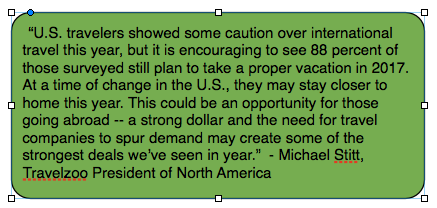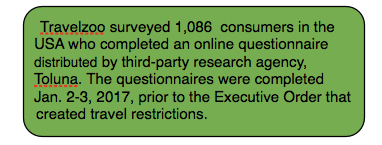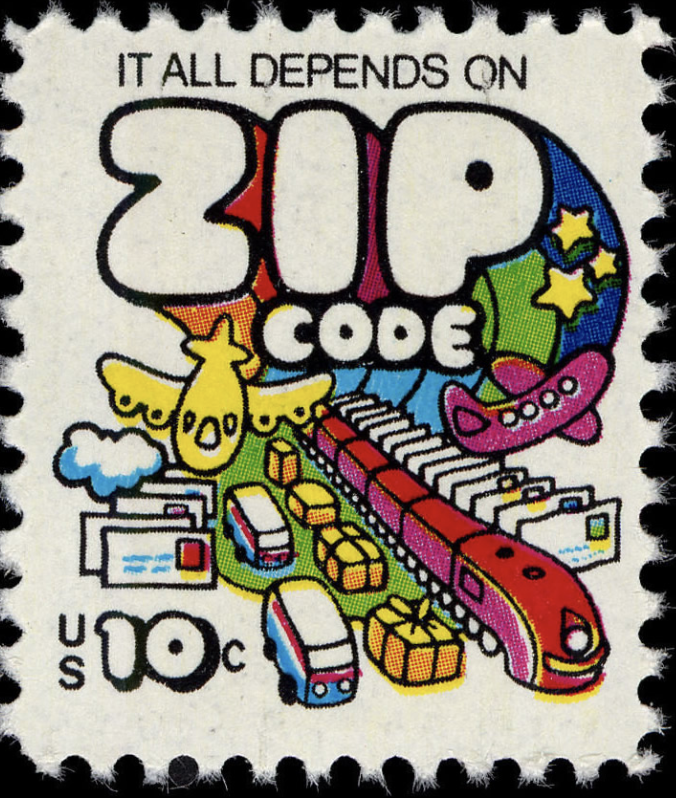
Find out which 10 U.S. zip codes generate most in actual online travel purchase transactions in this study by ADARA published by Skift. There are a few expected results among the top spenders—such as 60602 in downtown Chicago and 10118 in Midtown Manhattan—and a few surprises, such as 42667 in Indianapolis. Get the details here.
Pew Research Center answers the demographics question: When do the Millennials end and Generation Z begins? “Generational cutoffs aren’t an exact science,” they state. Nevertheless, in 2018, the fact tank determined that anyone born after 1996 and before 2011 belongs to the Gen Z cohort (1997-2010).
That said, what about Gen Z travel trends? According to custom research data gathered by Expedia Group Media Solutions, Looking Ahead: How Younger Generations are Impacting the Future of Travel, Gen Z is most likely to travel outside the United States, with most favoring off-the-beaten-path destinations.
And according to 2019 Virtuoso Luxe Report, Gen Z is very involved in family trip planning, “persuading others to embrace their desire for more active experiences [and] seeking out unusual destinations.”

And what next? Expedia just came out with a report entitled Generation Alpha and Family Travel Trends, How the World’s Youngest Generation is Influencing Family Travel. They’re labeled as Generation Alpha for now and the oldest is currently just nine years old.
The largest-ever study of travel marketers comes from Sojern. What are the key challenges for 611 respondents based in 46 countries who work with annual budgets of less than $50,000 to multi-million dollar ones?
- 61% of travel marketers leverage data for the ability to target based on traveler intent.
- 47% of travel marketers’ 2018 ad spend was allocated towards digital advertising.
- 46% of travel marketers say their top challenge is delivering personalized ads in real-time.
- 45% say achieving ROI targets is a concern.
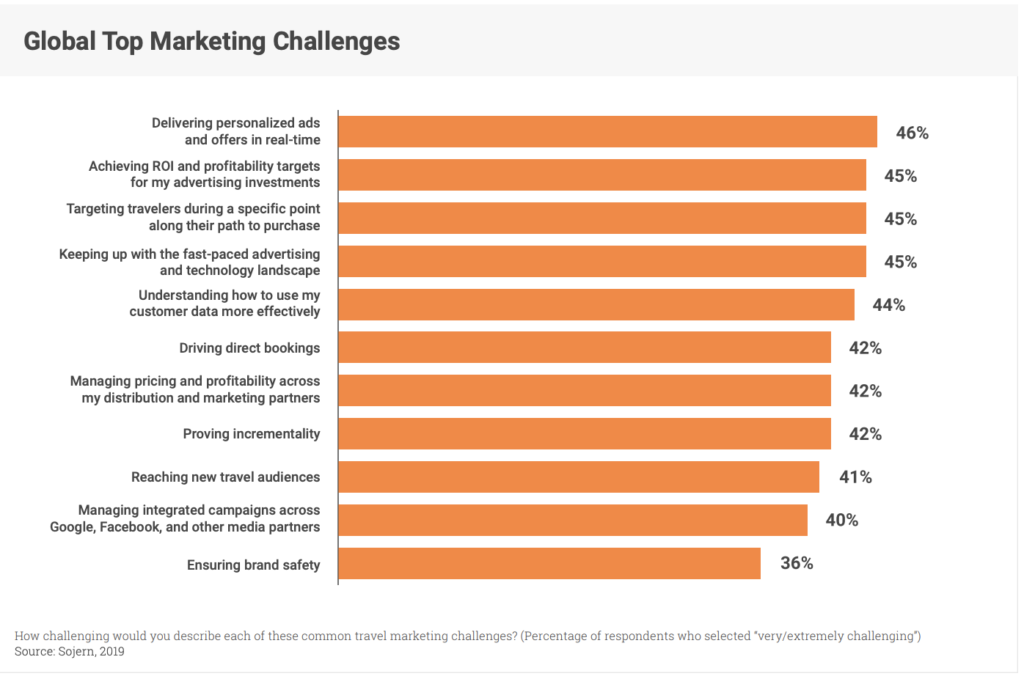
To explore the findings in more detail, download the full report State of the Industry: The 2019 Report on Travel Advertising.
The world is getting smaller but congestion is pushing our cities apart. U.S. Travel Association has issued results of a new Memorial Day Weekend study that indicates the high impact road congestion has on the American economy…and how American drivers feel about it.
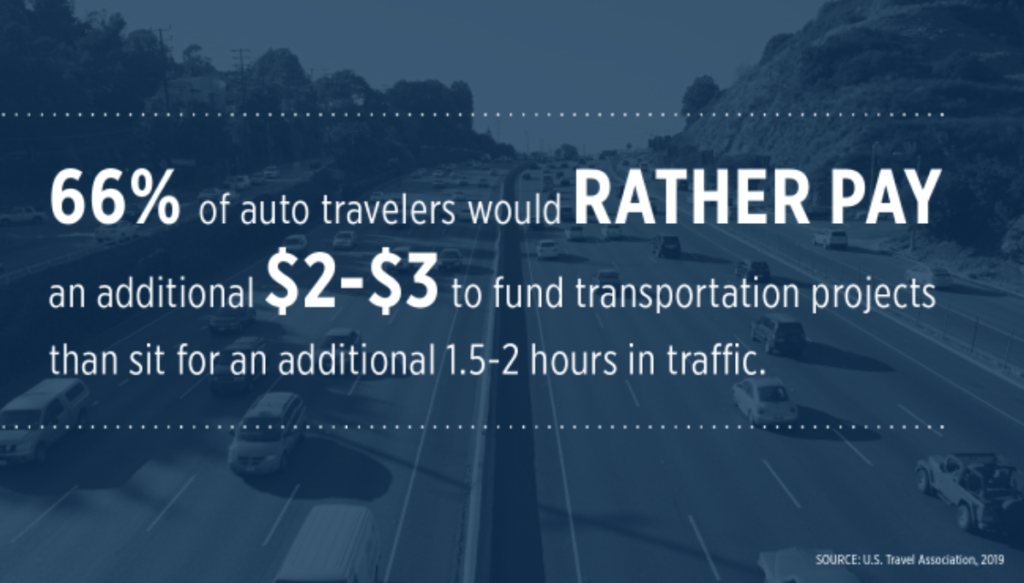
Roger Dow, U.S. Travel Association president & CEO said, “Our survey gave travelers a choice: would you rather pay more, or continue to sit in traffic?”
For each additional hour that traffic adds to a weekend car trip, travel demand drops by an average of 18%.
In the time it takes to drive between major U.S. cities during summer and peak hours, Americans could travel hundreds of miles farther if they had an efficient, safe and modern transportation network.
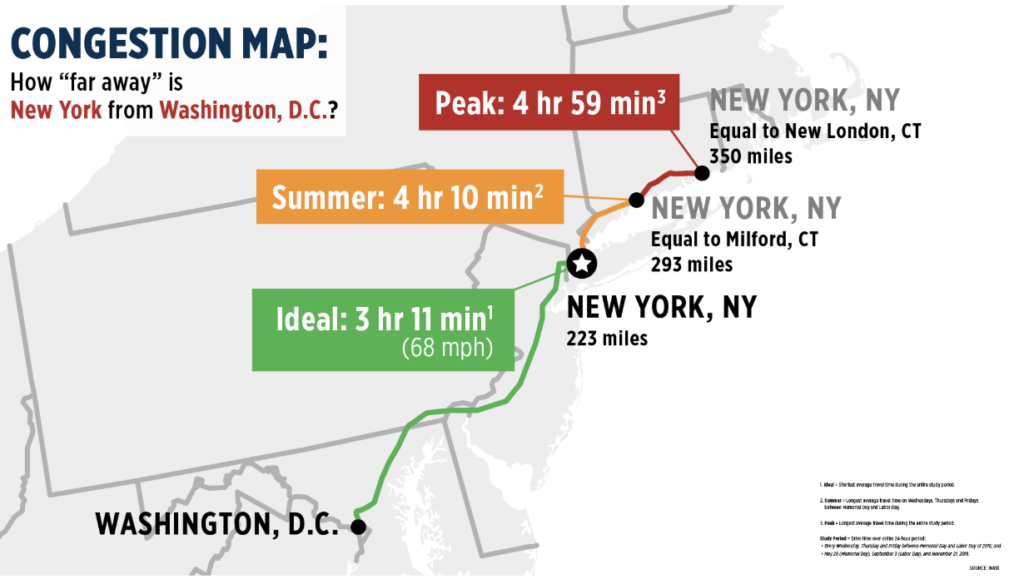
For example, along the I-95 corridor from Washington, DC to New York City, the study found that in the additional drive time necessitated by peak holiday conditions, travelers could have driven an additional 127 miles.
To get the survey’s key findings and several additional congestion maps for popular road trips, click here.

Lousy traffic aside, a Travelzoo survey confirms that people say holiday travel is good for our mental health, according to an overwhelming 83% of respondents. Also, 70% say they intend to incorporate wellness activities in their travel plans.
Findings come from an April survey of 10,736 Travelzoo members from Australia, Canada, China, France, Germany, Hong Kong, Spain, the UK and the USA. Read more here.
 The Greater Williamsburg Office of Marketing and Promotion is conducting an executive search to find their next Chief Executive Officer.
The Greater Williamsburg Office of Marketing and Promotion is conducting an executive search to find their next Chief Executive Officer.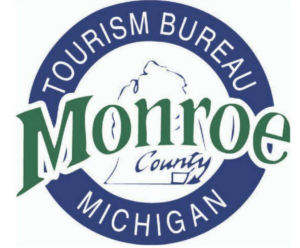 On the shores of Lake Erie in Michigan, Monroe County Convention & Tourism Bureau has opened its search for a President. As a part of the new strategic plan, the tourism bureau will undergo a rebranding and will no longer take the primary operation and execution role in area or county festival or events.
On the shores of Lake Erie in Michigan, Monroe County Convention & Tourism Bureau has opened its search for a President. As a part of the new strategic plan, the tourism bureau will undergo a rebranding and will no longer take the primary operation and execution role in area or county festival or events. A new search for an experienced professional: An Interim Executive Director is required at the Greater St. Charles Convention & Visitors Bureau in Illinois, under an hour west of Chicago.
A new search for an experienced professional: An Interim Executive Director is required at the Greater St. Charles Convention & Visitors Bureau in Illinois, under an hour west of Chicago. Philadelphia Convention & Visitors Bureau has an opening for Senior Vice President – Convention Division.
Philadelphia Convention & Visitors Bureau has an opening for Senior Vice President – Convention Division.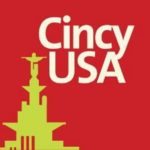
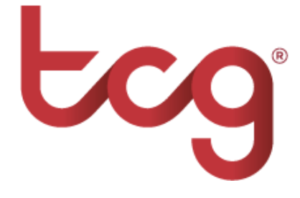 Search consultants, The Creative Group/Robert Half is recruiting a VP, Marketing – Tourism based in Los Angeles, with the employer not revealed.
Search consultants, The Creative Group/Robert Half is recruiting a VP, Marketing – Tourism based in Los Angeles, with the employer not revealed. In Baltimore, The Maryland Department of Commerce is seeking qualified applicants for the position of Marketing Data Analyst to lead the strategy and execution of data collection, analysis, insights and reporting within the Division of Tourism, Film, and the Arts.
In Baltimore, The Maryland Department of Commerce is seeking qualified applicants for the position of Marketing Data Analyst to lead the strategy and execution of data collection, analysis, insights and reporting within the Division of Tourism, Film, and the Arts. Into interactive museums? Marbles Kids Museum in downtown Raleigh-Durham, NC is looking for a Director of Marketing to plan, implement, manage strategy…and there’s even an IMAX.
Into interactive museums? Marbles Kids Museum in downtown Raleigh-Durham, NC is looking for a Director of Marketing to plan, implement, manage strategy…and there’s even an IMAX. Love haunted houses? Winchester Mystery House in San Jose, CA wants a Digital Marketing Coordinator with 2-5 years of experience.
Love haunted houses? Winchester Mystery House in San Jose, CA wants a Digital Marketing Coordinator with 2-5 years of experience.
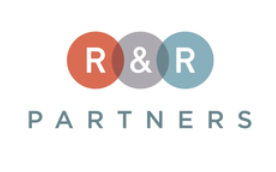 In Las Vegas, R&R Partners is looking for a Content Creative Director with experience in tourism and/or destination marketing to lead the creative team developing website and cross channel content on Instagram, Facebook, Snapchat, YouTube and more.
In Las Vegas, R&R Partners is looking for a Content Creative Director with experience in tourism and/or destination marketing to lead the creative team developing website and cross channel content on Instagram, Facebook, Snapchat, YouTube and more. Streetsense is recruiting a Senior Account Manager with real estate and/or travel and tourism experience required. This is a mid-level opportunity based out of their offices in the heart of Washington, D.C.
Streetsense is recruiting a Senior Account Manager with real estate and/or travel and tourism experience required. This is a mid-level opportunity based out of their offices in the heart of Washington, D.C. Delta Vacations, a wholly owned subsidiary of Delta Air Lines, requires a Partnership Marketing Manager in Atlanta to manage all aspects of programs and relationships with assigned hotels destinations, convention bureaus and tourism boards.
Delta Vacations, a wholly owned subsidiary of Delta Air Lines, requires a Partnership Marketing Manager in Atlanta to manage all aspects of programs and relationships with assigned hotels destinations, convention bureaus and tourism boards. Travelzoo has a new search for a Client and Content Associate with 3-5 years of experience in online marketing, digital media, or PR to be based in Miami.
Travelzoo has a new search for a Client and Content Associate with 3-5 years of experience in online marketing, digital media, or PR to be based in Miami. Madden Media, providers of custom and cooperative destination marketing solutions, has a new entry level position open for a Content Specialist based at the Tucson head office.
Madden Media, providers of custom and cooperative destination marketing solutions, has a new entry level position open for a Content Specialist based at the Tucson head office. The Chicago office of Milestone Inc. is hiring a Senior Omni-Channel Customer Success Manager with 5+ years experience in Paid Search, Display advertising, and/or Paid Social marketing. Experience in the hospitality industry is a plus.
The Chicago office of Milestone Inc. is hiring a Senior Omni-Channel Customer Success Manager with 5+ years experience in Paid Search, Display advertising, and/or Paid Social marketing. Experience in the hospitality industry is a plus. American Dream, a three-million-square-foot entertainment, retail and restaurant complex, seeks a Director-Tourism and Advertising in East Rutherford, NJ. The Triple Five Group is the company behind North America’s two largest retail and entertainment complexes – Mall of America in Minnesota and West Edmonton Mall in Canada.
American Dream, a three-million-square-foot entertainment, retail and restaurant complex, seeks a Director-Tourism and Advertising in East Rutherford, NJ. The Triple Five Group is the company behind North America’s two largest retail and entertainment complexes – Mall of America in Minnesota and West Edmonton Mall in Canada. In Tampa, Mediagistic is a growing marketing agency primarily focused on local advertising for the home service and travel & tourism industries. Looking for web design and Internet marketing skills including SEO, SEM, social media marketing and a certification in Google Ads and Google Analytics.
In Tampa, Mediagistic is a growing marketing agency primarily focused on local advertising for the home service and travel & tourism industries. Looking for web design and Internet marketing skills including SEO, SEM, social media marketing and a certification in Google Ads and Google Analytics. Based in Melbourne, FL, the Marketing Campaigns Executive for STA Travel will handle product liaison, supplier proposals, digital marketing, ad hoc events and promotions, development of media plans and campaign proposals, basic budget management and liaison with global teams on digital campaigns and marketing.
Based in Melbourne, FL, the Marketing Campaigns Executive for STA Travel will handle product liaison, supplier proposals, digital marketing, ad hoc events and promotions, development of media plans and campaign proposals, basic budget management and liaison with global teams on digital campaigns and marketing. Work for Destination El Paso as Sponsorship Manager to sell and manage event and venue sponsorships and high-level vendor partnerships with Destination El Paso, operating over 2M gross square feet of public assets. International Association of Venue Managers represents senior executives from auditorium, arenas, convention centers, exhibit halls, stadiums, performing arts centers, university complexes and amphitheaters worldwide.
Work for Destination El Paso as Sponsorship Manager to sell and manage event and venue sponsorships and high-level vendor partnerships with Destination El Paso, operating over 2M gross square feet of public assets. International Association of Venue Managers represents senior executives from auditorium, arenas, convention centers, exhibit halls, stadiums, performing arts centers, university complexes and amphitheaters worldwide.





